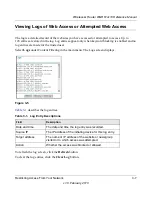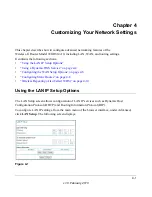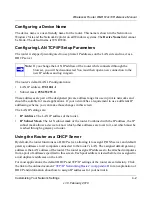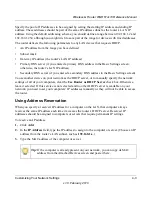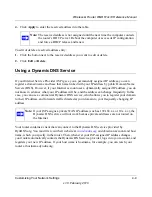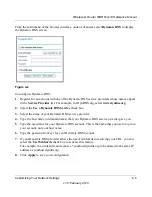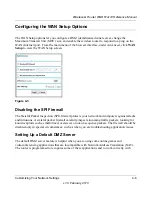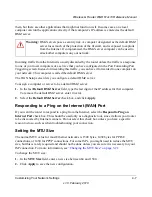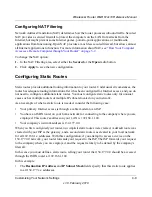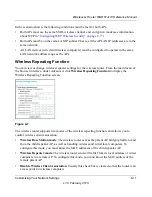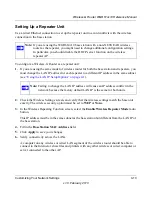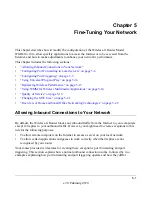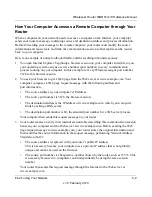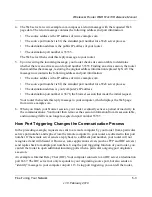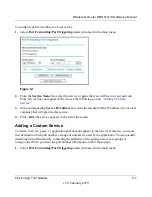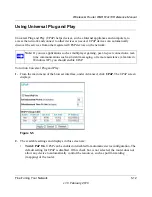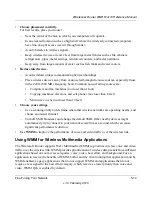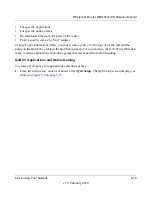
5-1
v1.0, February 2010
Chapter 5
Fine-Tuning Your Network
This chapter describes how to modify the configuration of the Wireless-G Router Model
WGR614v10 to allow specific applications to access the Internet or to be accessed from the
Internet, and how to make adjustments to enhance your network’s performance.
This chapter includes the following sections:
•
“Allowing Inbound Connections to Your Network
”
•
“Configuring Port Forwarding to Local Servers” on page 5-6
•
“Configuring Port Triggering” on page 5-9
•
“Using Universal Plug and Play” on page 5-12
•
“Optimizing Wireless Performance” on page 5-13
•
“Using WMM for Wireless Multimedia Applications” on page 5-14
•
“Quality of Service” on page 5-15
•
“Changing the MTU Size” on page 5-21
•
“Overview of Home and Small Office Networking Technologies” on page 5-22
Allowing Inbound Connections to Your Network
By default, the Wireless-G Router blocks any inbound traffic from the Internet to your computers
except for replies to your outbound traffic. However, you might need to create exceptions to this
rule for the following purposes:
•
To allow remote computers on the Internet to access a server on your local network.
•
To allow certain applications and games to work correctly when their replies are not
recognized by your router.
Your router provides two features for creating these exceptions: port forwarding and port
triggering. This section explains how a normal outbound connection works, followed by two
examples explaining how port forwarding and port triggering operate and how they differ.

